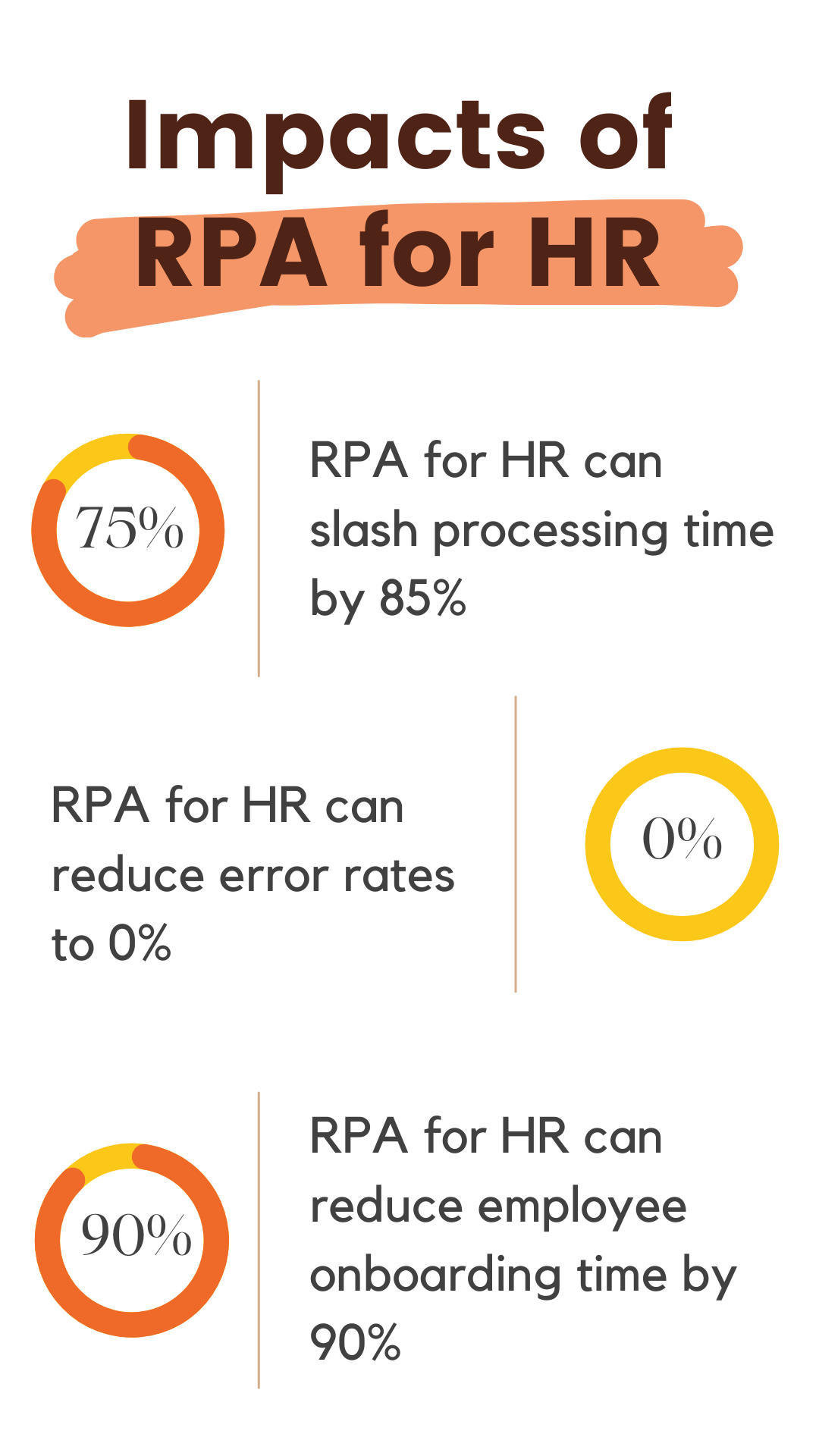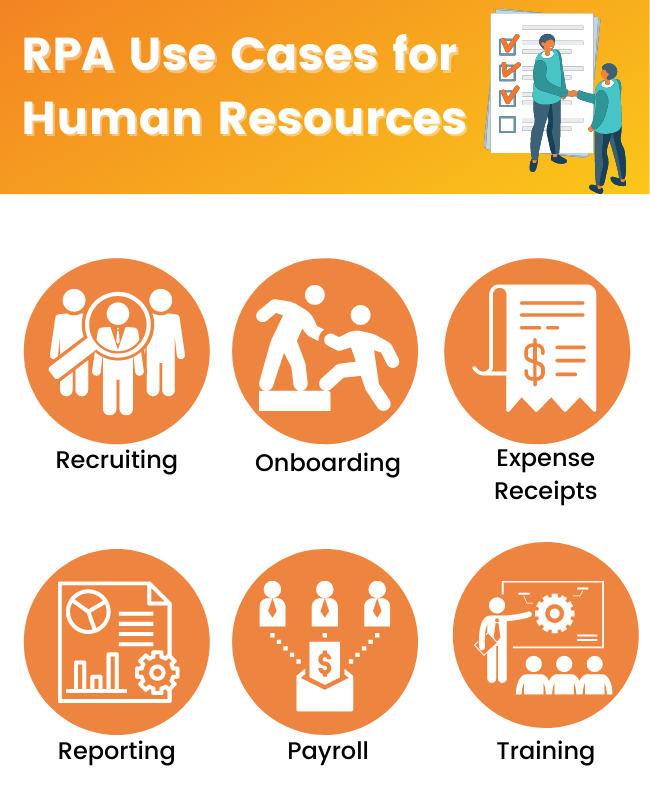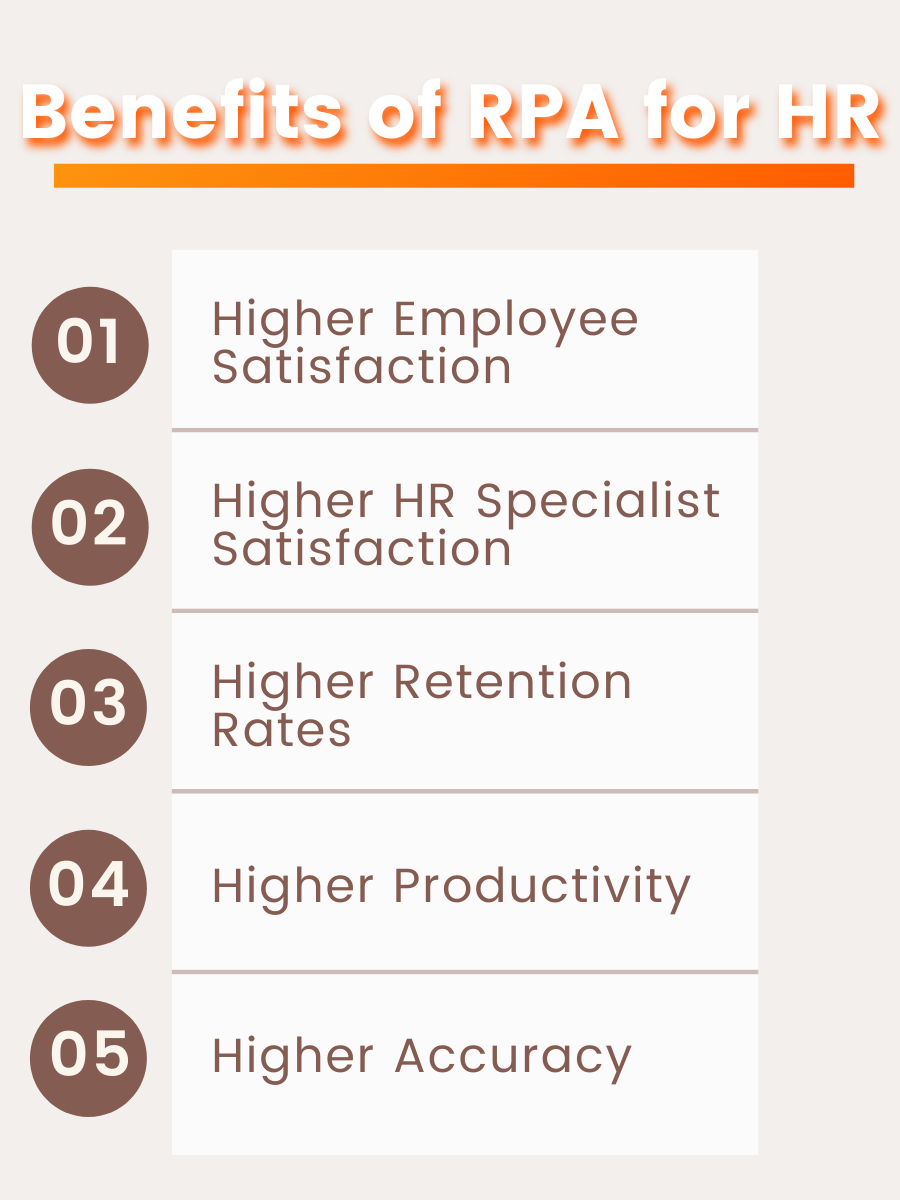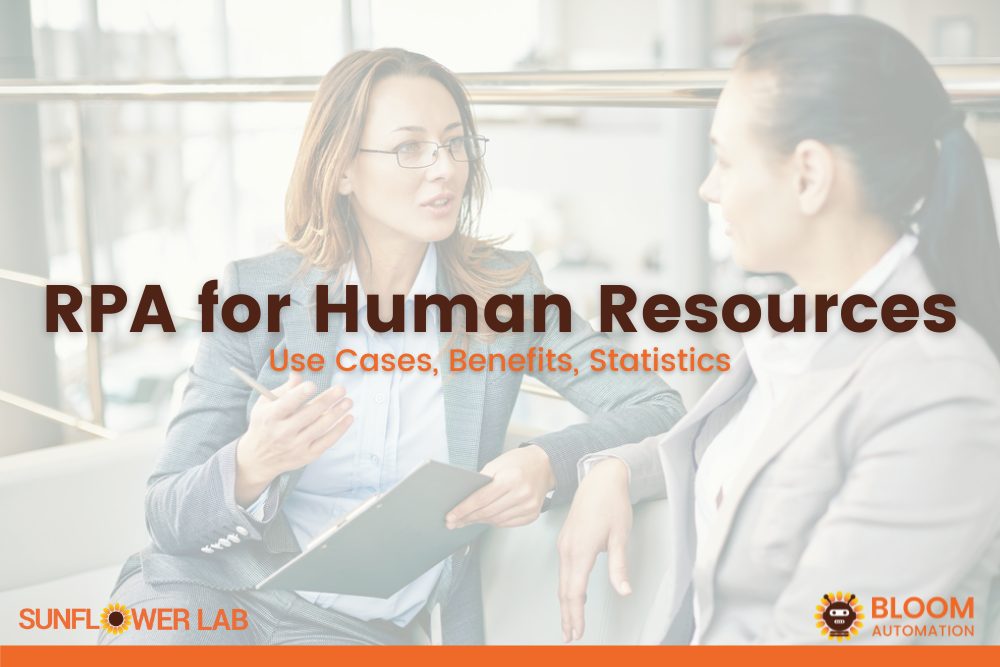Robotic process automation for human resources is an increasingly-popular solution to address the boring, paperwork-driven nature of HR departments. RPA for HR can significantly impact the speed, accuracy, and productivity of the business sector. Let’s explore HR department problems, how RPA can help, some RPA use cases for human resources, and benefits of RPA for HR.
The Problem with Manual HR Processes
Between payroll, onboarding, training, compensation changes, reporting, and more, human resource departments are bloated with monotonous, rule-based tasks. The very essence of an HR department is humans, but these boring jobs hinder HR specialists from adding interpersonal, creative, and critical value to their workforce. What’s more, these humdrum assignments can lead to knowledge workers experiencing boredom, burnout, and even the urge to seek a more challenging job. With nearly half of HR tasks having the potential to be automated, it’s time to put the “human” back in human resources with the help of robotic process automation.


Process Automation for HR Departments
HR departments around the world are implementing RPA into their repetitive, dull processes. Robotic process automation is the use of software bots to complete redundant, logic-based tasks so often found in human resource job descriptions. These tasks include payroll, employee onboarding and training, expense receipts, and other work that require a significant amount of manual and repetitive labor. RPA can complete these functions 24/7 with zero errors. In some situations, RPA for HR is reported to have slashed processing time by 85% and reduced the time of onboarding a new hire by 90%.
RPA Use Cases for Human Resources

Robotic process automation can be applied to several different areas of a human resource department. Wherever there are monotonous and objective duties, RPA can be deployed. A few RPA use cases for human resources include payroll, recruiting, onboarding, reporting, training, and expense reports.
Payroll
The payroll process is tiresome and time-consuming. Assign this task to RPA bots for speedy, error-free compensation distribution. A robot can pull salary data for each employee, automatically transfer funds on a scheduled date, and send a final report once the process is complete.
Recruiting
Spend less time sourcing and assessing candidates and more time engaging them in person with RPA for human resources recruiting. RPA bots can search through data bases and professional listing sites for employees that meet certain pre-determined criteria like education, skills, and experience. They will then automatically pull qualified individuals and add them to your HR/recruiting system or Excel sheet for the recruiter to review.
Training
Training is a time-consuming and repetitive process for human resource representatives. RPA can be implemented to identify the role of the new employee and automatically send appropriate login credentials, training modules, and employee handbooks for that specific position straight to the new employee’s inbox.
Onboarding
Using RPA to administer new employee paperwork can quickly and easily be done by a software bot so the HR rep can spend more face-to-face time with the person. Automatically distribute necessary paperwork, utilize OCR technology to extract the new hire’s information, and input it into the employee database with robotic process automation.
Reporting
Performance reviewing is an important part of human resource departments. Robotic process automation can be utilized to enter queries in your data and analytics applications, extract data, save in a report, and send for your review.
Employee Expense Receipts
Automating the employee expense receipts can significantly improve the time, expense, and accuracy of the manual workflow. RPA bots will receive employee expense receipts via email, download the attachments, create a folder with the employee’s name, and save all the attachments in the corresponding employee’s folder. For an in-depth example, check out this article on automating your employee expense receipts, or watch the video below.
Benefits of RPA for Human Resources

Leveraging the emerging tech concept of robotic process automation illuminates new business possibilities for HR departments: higher employee and customer satisfaction, more productivity, fewer errors, higher retention rates, to name a few. While the RPA bot works around the clock to complete the administrative, logic-based jobs without error, HR specialists can pursue more interesting an interactive work. This will mitigate burnout and raise their satisfaction levels. RPA for HR will also delight new and existing employees as they are getting more attention from their human resource colleagues. These are just a few of the sprawling list of benefits of RPA for human resources.
Higher employee satisfaction
New and existing employees receive more attention from HR representatives, meaning more of their needs are being met.
HR workers are more fulfilled
Boring work is replaced with more interesting and in-person work which reduces quit rates.
Higher retention rates
With more satisfied HR specialists and employees, fewer individuals will seek alternative employment.
Higher productivity
RPA bots can complete tasks 24/7 while knowledge workers can add value to the company elsewhere.
Higher Accuracy
Human error is the cause of many HR discrepancies. As long as they are programmed correctly, software bots can deliver error-free workflows.
Elevating Human Resources with Process Automation
For years, human resource departments have been bogged down with menial tasks that take away from time that could be spent strengthening employee relationships and building company culture. Now, robotic process automation is being introduced to help alleviate knowledge workers of repetitive, boring tasks. From payroll to employee training, RPA is helping HR sectors put their focus back on their workforce by automating these boring jobs. As a result, companies are realizing higher retention rates, more satisfaction, better accuracy, and more. That is the power of RPA for HR.
You might also like
Stay ahead in tech with Sunflower Lab’s curated blogs, sorted by technology type. From AI to Digital Products, explore cutting-edge developments in our insightful, categorized collection. Dive in and stay informed about the ever-evolving digital landscape with Sunflower Lab.









